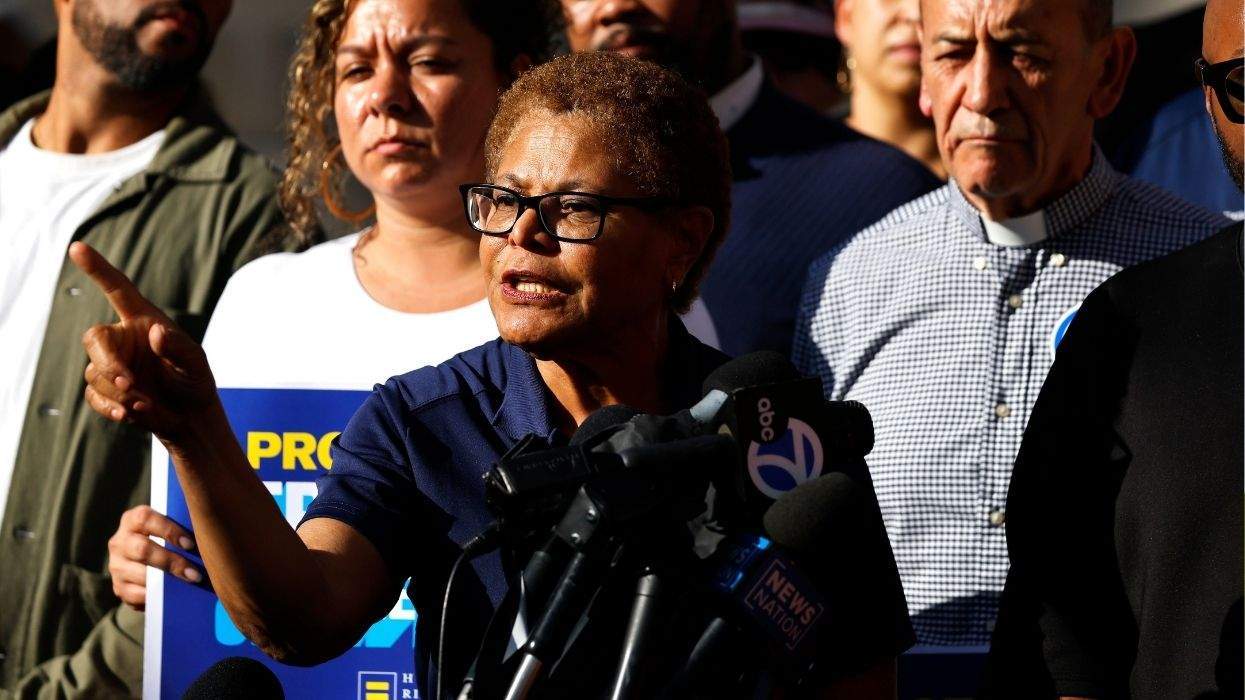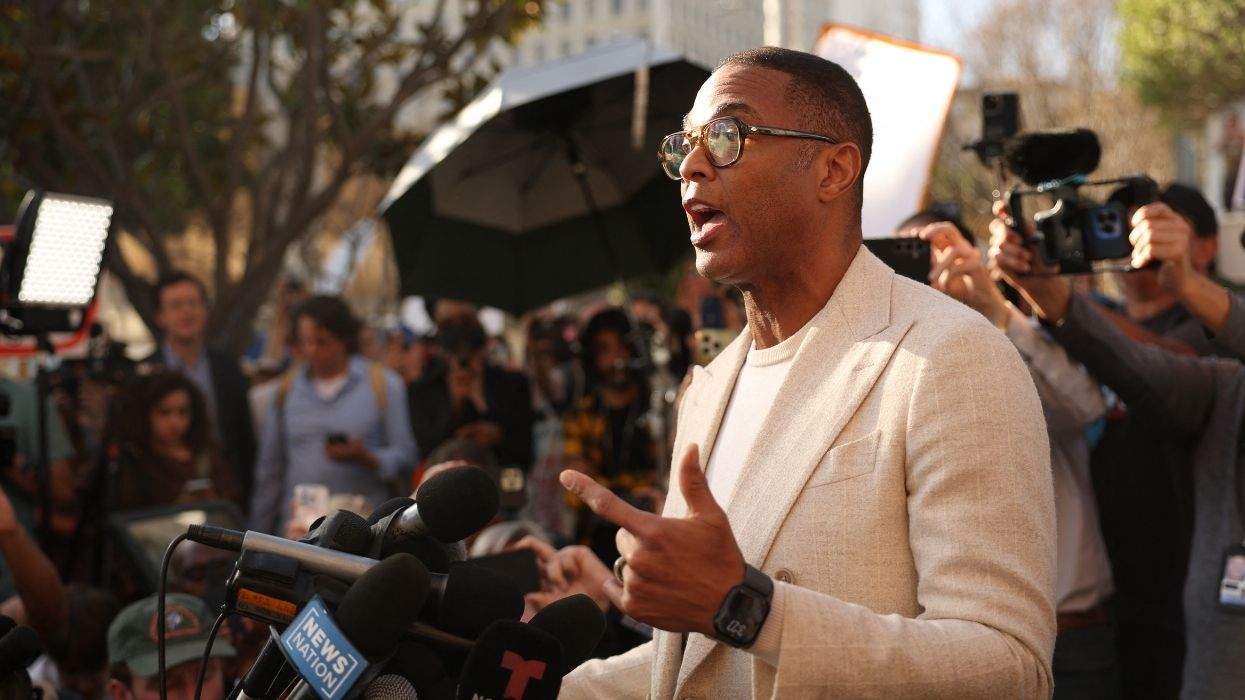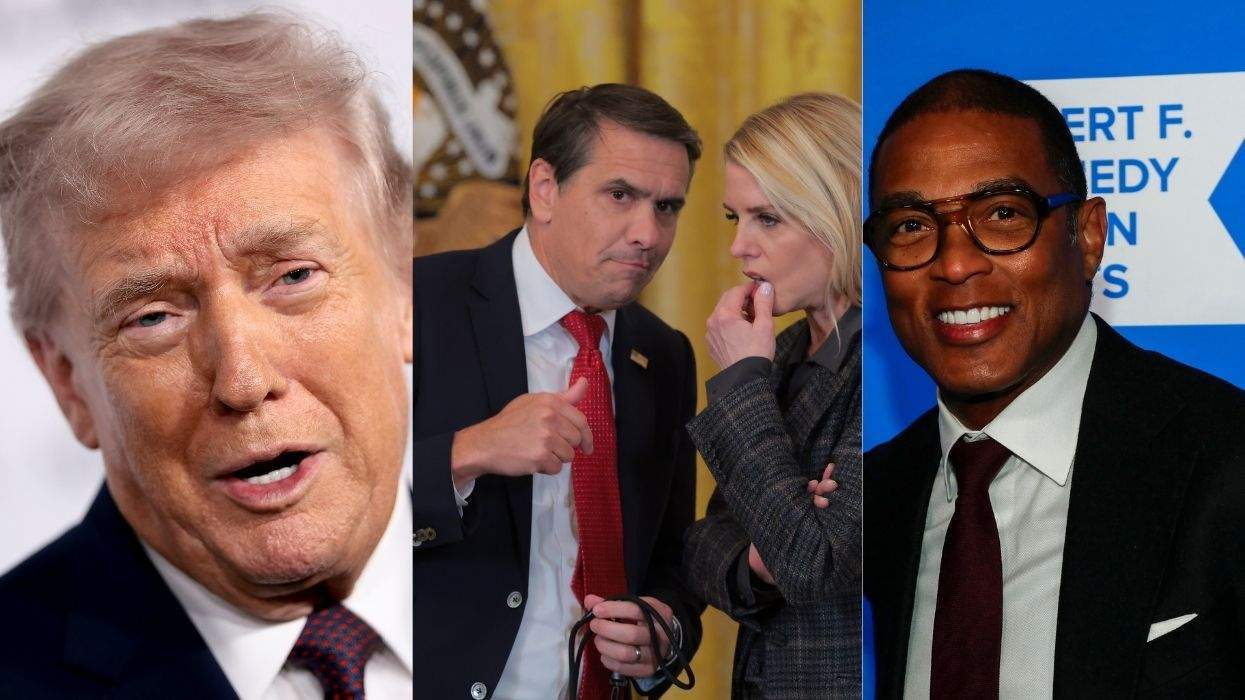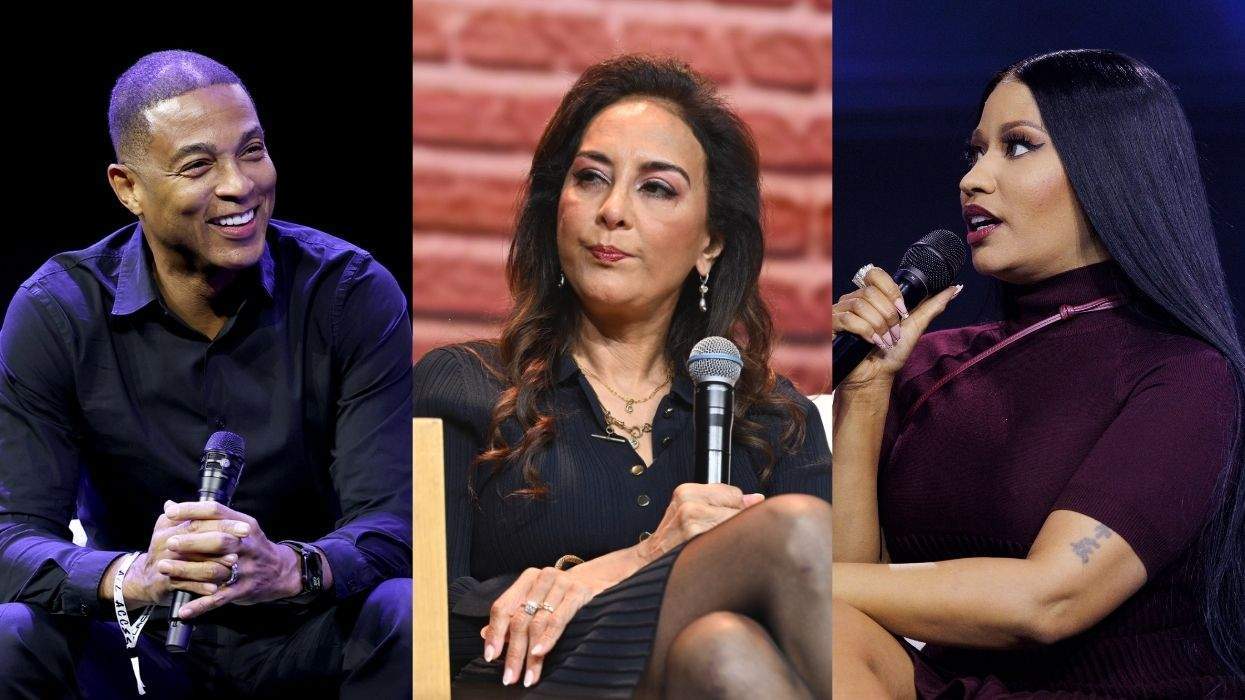BBC program Newsnight is under fire for running a series of segments about transgender issues and not including a single trans person in the discussions.
Lately, Newsnight has discussed topics such as trans women in women's spaces, trans youth in schools, and a recent U.K. High Court ruling that restricts the use of puberty blockers for trans youth.
In the latter episode, the program featured a plaintiff in the case and the mother of a trans child but no actual trans people. After it aired, Twitter user Katy Montgomerie sent a complaint to the BBC about the lack of trans voices on the issue, PinkNews reports.
The BBC Executive Complaints Unit responded Monday, saying the broadcaster followed its guidelines for "due impartiality." "I appreciate the concern you have raided but I am afraid I do not share your view that it was necessary to include a contribution from a trans person bearing in mind the scope and focus of the Newsnight coverage," the response said. "As you can see, due impartiality means taking account of the subject and nature of the matter under discussion when deciding which viewpoints need to be reflected."
"On this occasion, the focus was on the High Court decision and the consequences for young people receiving, or waiting for, treatment with puberty blockers," the message continued. "The Editorial Guidelines make it clear the requirement was to ensure the report, and the subsequent discussion, gave due weight to an appropriate range of significant views and perspectives which were relevant to the High Court decision. I am satisfied that was achieved on this occasion."
In a statement to PinkNews, a BBC spokesperson said, "The ECU found that the item in question -- which included perspectives from an LGBTQ+ charity -- met BBC Editorial Guidelines on due impartiality. In all coverage we work to ensure a range of views and perspectives."
This isn't the first time the BBC has been criticized for its coverage of trans issues or its claim of"journalistic neutrality." Last year, employees complained after they were barred from attending Pride and Black Lives Matter events because they were deemed "political protests" and would supposedly interfere with a journalist's impartiality.
Also last year, Parliament challenged the BBC after the broadcaster decided to include contributions from anti-trans hate groups in its coverage of trans issues. Scottish National Party MP John Nicolson, a former BBC journalist, asked BBC Director General Tim Davie if he would include viewpoints from avowed racists or sexists in a discussion on Black Lives Matters or women's equality.
"It's very interesting the point you make on Black Lives Matter," Davie replied, "because I was very clear that racism is abhorrent and absolutely we stand as the BBC against it. ... Black Lives Matter, clearly there is some debate around the political campaigning, the various elements of that, that I think are legitimate debate." He said that because he didn't have the specific article on trans issues Nicolson was talking about, he couldn't be sure of the ethics or moral stances he would take. "On the trans case, I don't know, and without that in front of me, I cannot get to that line," Davie said.















Charlie Kirk DID say stoning gay people was the 'perfect law' — and these other heinous quotes
These are some of his worst comments about LGBTQ+ people made by Charlie Kirk.